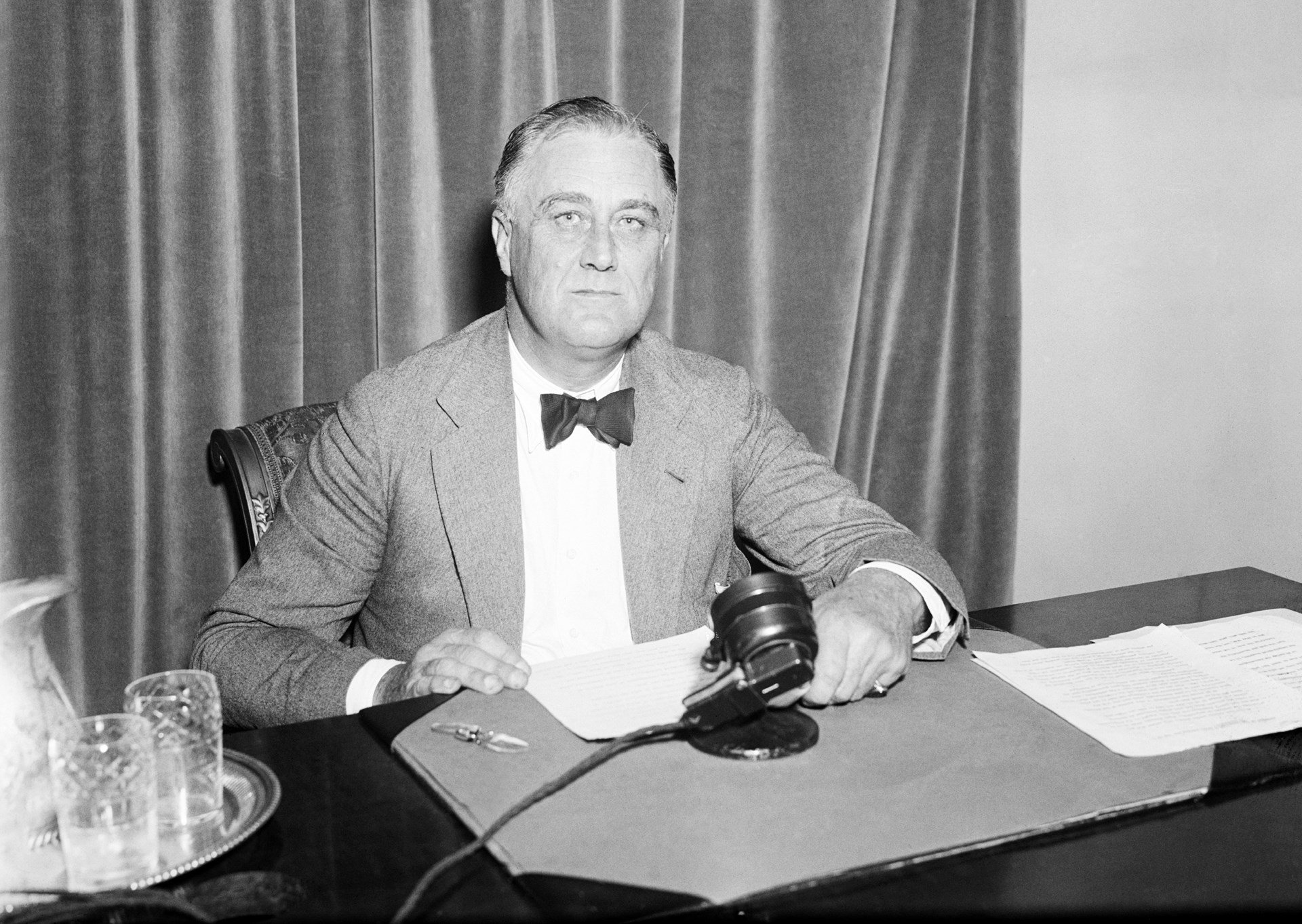FDR’s economic recovery as part of his New Deal policies is a hotly contested part of his legacy. The first challenge is that FDR’s public-works projects were rife with corruption. Economic historians have been at pains to account for the distribution of these projects around the country—why, for example, did the South, where people were the poorest, receive the least assistance from FDR’s Works Progress Administration (WPA)?
A number of scholars, noting the rather curious preponderance of WPA projects in western states where FDR’s electoral margin had been thin in 1932, believe political considerations played an important role in how these projects were distributed. Researchers like Gavin Wright, John Joseph Wallis, Jim F. Couch, and William F. Shughart II found a significant correlation between New Deal spending and FDR’s political needs. Wright, for instance, contended that political factors could account for 80 percent of the difference in New Deal spending among the states. FDR spent more on western states than on southern ones because the South, which had given him 67 percent of the vote, was much more politically secure than the west, and he had little need to buy their votes.
FDR’s Economic Recovery
WPA workers were often pressured into supporting FDR’s favored candidates, changing their party affiliations, or “contributing” to FDR’s re-election campaign. An investigation by a Senate committee found case after case of WPA employees being instructed to contribute a portion of their salaries to the president’s reelection campaign if they wished to remain employed; of people being thrown off the relief rolls for refusing to pledge their support for a favored candidate; and of demands that registered Republicans on relief register as Democrats in order to keep their jobs.
This was by no means the only example of political intimidation that occurred during the FDR years. The standard textbook provides all the details of Watergate and of Richard Nixon’s abuse of power (as indeed it should), but not a word about FDR as the pioneer of this activity. When the Paulist Catholic radio station of poor Father James Gillis in Chicago criticized FDR’s court-packing scheme, the FCC took its license away. As early as 1935, FDR requested that the FBI initiate a series of investigations into a variety of conservative organizations, and later in the decade secretly sought proof (which, of course, never came) that prominent members of the America First Committee, routinely smeared as Nazis and traitors, were receiving Nazi money.
Cite This Article
"FDR’s Economic Recovery: The Political Dimensions" History on the Net© 2000-2024, Salem Media.
April 27, 2024 <https://www.historyonthenet.com/fdrs-economic-recovery>
More Citation Information.






